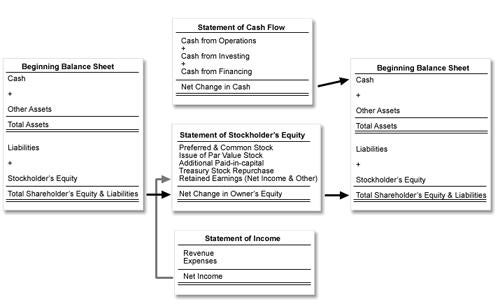Relation between earnings cash flows
Error (Forbidden)
Cash flow and earnings are two different accounting concepts, featuring the time difference between cash movements and business transactions. A cash flow may not be reported as earnings unless it happens at the same time as a sale or expense transaction.

On the other hand, earnings may be non-cash accounting income. However, in the long term, cash flow and earnings should converge as cash is collected or paid.
Small businesses with limited financing must not only focus on earnings but also pay attention to cash flow, the actual money resources used to support operations. Earnings in financial reports are accounting profits that are the results of both cash and non-cash revenues. Companies recognize revenues when earned regardless of cash receipts.
When companies make sales on credit, they record revenues at the time of the sales and thus report earnings before receiving cash payments from customers.
When companies are able to collect the cash later, the amount of cash flow catches up with the earnings number. But if companies fail in their cash collection, the reported earnings are misleading to a degree. Not all sale-related cash received can be reported as earnings at the time. Customers may make advanced payments on future sales that companies can recognize as revenue and earnings only over time.
As a result, companies may have lower reported earnings at times, while they may show stronger cash flow positions in the meantime. Companies may also have lower reported earnings compared to cash flows because of the accrual method of accounting used in recording expenses.
Companies record an expense when incurred to match with the revenue that it helps generate in the same period, even though no cash has been paid for the expense. As a result, the accrued expense reduces reported earnings but conserves cash in the meantime.
The Corroborative Relation between Earnings and Cash Flows on JSTOR
When companies make cash payments later for earlier expenses, this reduces cash flows but has no effect on earnings. Certain cash expenditures are not expensed immediately in their entirety at the time of the cash outlay, such as capital expenditures on asset purchases and prepaid expenses for certain future operating costs.
Following the same accrual method of accounting, companies record expenses as they are incurred over time -- for example, in the form of depreciation expenses for cash expenditures of asset purchases. Thus, companies may report higher earnings at times, but over time, they will have to deduct the amount of earlier cash expenditures from earnings reported later on.
The Difference Between Earnings And Cash Flow - Timothy Sykes
Skip to main content. Non-Cash Earnings Earnings in financial reports are accounting profits that are the results of both cash and non-cash revenues. Non-Earnings Cash Not all sale-related cash received can be reported as earnings at the time. Non-Cash Expense Companies may also have lower reported earnings compared to cash flows because of the accrual method of accounting used in recording expenses.

Non-Expense Cash Certain cash expenditures are not expensed immediately in their entirety at the time of the cash outlay, such as capital expenditures on asset purchases and prepaid expenses for certain future operating costs.
References 1 Charles Schwab; Cash Flow vs. Which Is More Meaningful?

Suggest an Article Correction. More Articles How to Present an Increase in Intangibles in Cash Flow Statement Do Retained Earnings Affect Net Cash Provided by Operating Activities?
What Three Types of Transactions Affect Retained Earnings? What Is "Theater Level Cash Flow"?
Logo Return to Top. Contact Customer Service Newsroom Contacts. Connect Email Newsletter Facebook Twitter Pinterest Google Instagram. Subscribe iPad app HoustonChronicle.